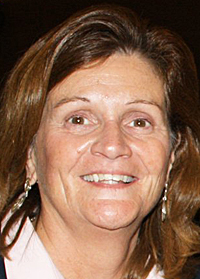AUGUSTA — A Democratic lawmaker said Monday that Republican Senate President Kevin Raye is seeking publicity, not a solution, with a bill to change Maine’s presidential nominating process.
Rep. Linda Valentino, D-Saco, asked Raye during a public hearing why his bill, which would allow political parties to hold primary elections rather than caucuses, is an emergency, when Maine’s next presidential nominating process won’t happen until 2016.
Any legislation considered in this session is supposed to be an emergency, although the term is broadly defined when legislative leaders decide what will be considered.
“We’ve got two weeks left in the session,” Valentino said. “This is nothing more than a press conference. This is not a public hearing.”
Raye said the issue is fresh on people’s minds because of last month’s controversy over the Republican caucuses.
Party Chairman Charlie Webster announced on Feb. 11 that Mitt Romney had won, even though some votes hadn’t been counted and errors were found in county totals. In Washington County, where Raye’s district is located, the caucus was postponed that day because of a snowstorm.
A week later, after the numbers were reviewed and Washington County’s votes were counted, Romney was again declared the winner, with Ron Paul second.
Given the amount of interest in the process, Raye said, now is a good time for the Legislature to act.
“In my view, this is a good-government bill,” he said during the hearing before the Legislature’s Veterans and Legal Affairs Committee. “This would increase participation and put Maine in line with what other states are doing.”
Raye, who is now running for Congress, said Maine’s caucus system is confusing and inconvenient for voters. He noted that the state holds primaries for county, state and congressional seats, but uses caucuses to choose presidential candidates.
“My bill is intended to end the confusion and frustration and replace it with a voter-friendly presidential primary,” he said. “It is my goal to encourage broader participation of voters and also attract greater national attention for Maine in the nominating process.”
Raye’s bill, L.D. 1882, would allow the political parties to decide whether they want to hold primaries or caucuses. Only registered party members could vote, and the primary date is not specified in the bill. Running a presidential primary would cost an estimated $1 million, Raye said.
The state last held presidential primaries in 2000, said Julie Flynn, a deputy secretary of state. In 2003, the Legislature repealed the law that allowed primaries. Raye is seeking to once again give the parties the power to hold primaries.
Flynn testified in support of the bill, saying turnout for the primaries was far higher than it has been for caucuses.
Gov. Paul LePage’s counsel, Dan Billings, told committee members that the governor supports the bill because he wants more voters to participate in the process. He said that in 2008, some 45,000 Maine Democrats participated in the caucuses when Barack Obama and Hillary Clinton were fighting for the nomination.
That was far fewer than in 2000, when 64,000 Maine Democrats voted in their primary and 96,000 voted in the GOP primary.
Billings encouraged the committee to remove the part of the bill that would allow parties to choose whether to hold primaries, and simply require them.
Other Democrats and independent Rep. Ben Chipman of Portland joined Valentino in expressing concern about the bill, saying it would be expensive and there have been relatively few problems with caucuses.
Rep. Michael Carey, D-Lewiston, co-sponsored the bill, but testified neither for nor against it at the hearing.
“Caucuses have long served the people of Maine, giving people an opportunity to learn about candidates from their friends and neighbors, not from paid advertisements,” he said. “We should not change the system lightly or without good reason.”
Valentino’s questioning of Raye was particularly pointed, and somewhat unusual for a legislative hearing. Rep. Michael Beaulieu, R-Auburn, the committee’s House chair, interrupted Valentino to ask her to limit her questions to the content of the bill, rather than its timing.
With no primary date specified in the bill, Chipman asked why presidential primaries couldn’t be held in June, when Maine’s congressional, legislative and county primaries are held. Raye said that is too late in the presidential campaign if Maine wants to have any influence on the national nominating process.
Flynn encouraged the committee to set a firm date in the law – she suggested early March – to make the primaries predictable for her office and candidates.
The committee has not yet scheduled a work session to consider the bill.
MaineToday Media State House Writer Susan Cover can be contacted at 620-7015 or at:
scover@mainetoday.com
Send questions/comments to the editors.



Comments are no longer available on this story